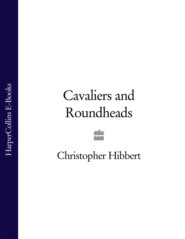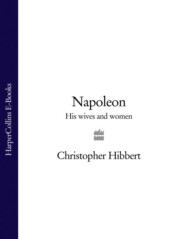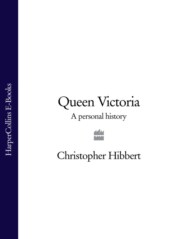По всем вопросам обращайтесь на: info@litportal.ru
(©) 2003-2025.
✖
Disraeli: A Personal History
Настройки чтения
Размер шрифта
Высота строк
Поля
(#litres_trial_promo)
He went on to talk about London’s gentlemen’s clubs, membership of which Disraeli was finding it difficult to acquire. He would have liked to join White’s which, founded at White’s Chocolate House in 1693 on the site of what is now Boodle’s, was the oldest and grandest of the St James’s gentlemen’s clubs; but its members were most unlikely to support the candidature of a prospective member of Disraeli’s background, appearance, race and manner, not to mention his authorship of Vivian Grey. Much the same objections would be raised by the members of Boodle’s, a large proportion of whom were country gentlemen of decidedly conservative views, and of Brooks’s, membership of which was described in 1822 by John Campbell, later Lord Chancellor, as a ‘feather in [his] cap’ since it consisted of ‘the first men of rank and talent in England’.
Disraeli then thought of the Travellers’ Club, founded in 1819 for gentlemen who had travelled abroad for at least five hundred miles from London in a straight line; and, since he had travelled further than most, he was qualified on that score. But its members did not want him; most particularly the Whig Lord Auckland, whose influence with other members of the committee was paramount, did not want him, and so he was blackballed. This was no disgrace, he assured Sarah. ‘These things happen every night and to the first people.’
He would, he decided, join instead the Athenaeum, of which his father had been a founding member. This, the most intellectually élite of London’s clubs, had been founded as recently as 1824 for artists, writers and scientists, almost singlehandedly by John Wilson Croker, the Irish politician and essayist whom Lord Macaulay detested ‘more than cold boiled veal’. Membership of this club was more likely for Disraeli to achieve than that of the Travellers’, although its members did not take kindly to the young man when they heard that he had ignored the club’s rules by walking upstairs to talk to his father in the library. However, his friend, Edward Lytton Bulwer, undertook to support his candidature. Disraeli had grown very attached to Bulwer, his one close friend in the literary and publishing world and, so he said, one of the few men with whom his intellect came ‘into collision with benefit’. He invited him to stay at Bradenham, telling Sarah that he was to do there ‘just what he liked’; and he went with Bulwer for a short holiday to Bath where they arrived late one evening at a public ball in all their extravagant finery and, as he was delighted to record, ‘got quite mobbed’.
Bulwer thought it as well to warn him, however, that he might well be blackballed at the Athenaeum, as its members would have reason to fear that he would ‘clap them into a Book…These quiet fellows have a great horror of us Novel writers,’ Bulwer explained. ‘For my part, if I had not got into all my Clubs (at least the respectable ones) before I had taken to Authoring I should certainly be out of them all at this time.’
(#litres_trial_promo)
While waiting for his election to the Athenaeum, Disraeli was advised to try for membership of the recently founded Conservative Club; but he thought it unwise to join a club so obviously associated with the Tories; and it was not until 1836 that he joined a club with a less identifying name, the Carlton.
By this time the committee of the Athenaeum had made up their mind; and Disraeli was blackballed as he had been by the Travellers’. His family believed that John Wilson Croker was to blame; and in his novel, Coningsby, Disraeli was to caricature Croker as Rigby, a man ‘destitute of all imagination and noble sentiments…blessed with a vigorous, mendacious fancy, fitful in small expedients, and never happier than when devising shifts for great men’s scruples’.
(#litres_trial_promo)
Denied membership of both the Athenaeum and the Travellers’, Disraeli joined a less prestigious club, the Albion, which few had heard of and which did not long survive.
(#litres_trial_promo) However, it turned out to be ‘a very capital club’, so he was to say. ‘Few in number, but not at all the set I anticipated – a great number of M.P.s and tho’ not fashionable, distinguished. The grub and wines the best in London, and all on a finished scale.’
(#litres_trial_promo)
Those who saw Disraeli for the first time in the reception rooms of private houses were not surprised by the difficulties he encountered in finding a gentlemen’s club which would have him as a member, since the young man with the lustrous black curls would stride about in clothes which seemed almost to excite ridicule, suits of satin-lined black velvet with embroidered waistcoats, rings on his gloved fingers, gold chains round his neck. ‘He wore waistcoats of the most gorgeous colours and the most fantastic patterns with much gold embroidery, velvet pantaloons and shoes adorned with red rosettes,’ wrote one observer. ‘His black hair pomaded and elaborately curled and his person redolent with perfume.’
(#litres_trial_promo)
The beautiful, eccentric and quarrelsome Irishwoman, Rosina Bulwer – for whose extravagances her husband had to pay by his writings – did not at all care for him. One day in her house, wearing his exotic green velvet trousers, he rose from a cane chair to stalk about the room with his coat-tails over his arms, revealing the marks of the chair imprinted on his seat. Who is that? asked Samuel Rogers. Rosina, violently anti-semitic, answered, ‘Oh! Young Disraeli, the Jew.’ ‘Rather the Wandering Jew,’ said Rogers, ‘with the mark of Cane upon him.’
(#litres_trial_promo)
A pretentious woman, who appeared at her husband’s parties in a ‘blaze of jewels’ and carrying about with her a tiny dog named Fairy, with which she seemed besotted, Rosina Bulwer did not trouble to conceal her dislike of Disraeli, of whom she was to draw an unpleasant portrait in her novel, Very Successful (1856), in which he appears as Jericho Jabber, the ‘Jew d’Esprit’ who marches about the room, ‘ostentatiously admiring the ceiling’. Nor, indeed, did she get on well with her husband, who appears as the villain in her novel, Chevely, or the Man of Honour, which was published soon after she had consented to a legal separation. Nor did Disraeli try to hide his dislike of Rosina Bulwer and of the Irish generally: ‘I never see her’, he said, ‘without thinking of a hod of mortar and a potato. Nature certainly intended that she should console her sorrows in Potheen.’
(#litres_trial_promo)
(#litres_trial_promo)
Unsuccessful in obtaining membership of a good London club, Disraeli was also initially unsuccessful in his attempt to get into Parliament. He had publicly announced his desire to do so at a party given by Caroline Norton, in whose house he met Lord Melbourne. ‘Well, now, tell me, what do you want to be?’ Melbourne asked him after they had been talking together for some time. ‘I want’, the young man replied, ‘to be Prime Minister.’ ‘Melbourne gave a long sigh.’
(#litres_trial_promo)
It was, perhaps, on this occasion at Mrs Norton’s that Disraeli threw across the table to Melbourne a letter from Paul Emile Botta, the Italian doctor and archaeologist, describing Arab sexual practices. The painter, Benjamin Robert Haydon, was of the company and was shocked. Talking ‘much of the East’, Disraeli seemed to Haydon ‘to be tinged with a disposition to palliate its infamous vices. I meant to ask him if he preferred Aegypt, where sodomy was preferment to England where it very properly was Death.’ Referring later to Disraeli’s behaviour, Haydon commented, ‘I think no man would go on in that odd manner, wear green velvet trousers and ruffles, without having odd feelings. He ought to be kicked. I hate the look of the fellow.’
(#litres_trial_promo)
Although he had already decided to offer himself as a candidate at High Wycombe, he had not yet made up his mind which party to commit himself to. He had an instinctive dislike of the Whigs, but had not yet otherwise developed any strong political inclinations. In any case, he felt drawn to Westminster not, it seems, by any sense of public service, but by ambition and vanity, the desire for fame, the need to make himself remarkable. Realizing that it might prove fatal to attach himself to a falling star, he shied away from the Tories, whose influence was rapidly waning; and he made up his mind to present himself as a Radical. ‘Toryism is worn out,’ he told Benjamin Austen, ‘and I cannot condescend to be a Whig…I start in the high Radical interest.’
(#litres_trial_promo)
7 THE CANDIDATE (#ulink_897d98c4-0717-55cc-b777-81d5ba84289a)
‘All the women are on my side and wear my colours.’
AT THE BEGINNING OF JUNE 1832, Disraeli went down from London to High Wycombe to begin his canvass of the constituency. The sitting members were Sir Thomas Baring, the financier, and the Hon. Robert John Smith, Lord Carrington’s son and heir who lived at Wycombe Abbey on the outskirts of the town, in which he had much influence, and who later became known as ‘glass-bottom Carrington’ because of his idée fixe that ‘an honourable part of his person was made of glass, so that he was afraid to sit thereon, and during the whole of his uneventful life, he persistently refused to sit whenever it was possible by any exercise of ingenuity to stand up or lie down’.
(#litres_trial_promo)
Having declared himself a Radical, Disraeli told Benjamin Austen that he took with him ‘strong recommendatory epistles’ from those stalwarts on the left, Daniel O’Connell, Joseph Hume and Francis Burdett. A few days later he wrote again to Austen, dating his letter from the Red Lion, the inn, now demolished, that stood in the High Street with a statute of a red lion on the portico: ‘I write you a hurried note after a day’s hard canvass. Whigs, Tories and Radicals, Quakers, Evangelicals, Abolition of Slavery, Reform, Conservatism, Corn Laws – here is hard work for one who is to please all parties. I make an excellent canvasser.’
(#litres_trial_promo)
We are hard at it [he added in a letter to Mrs Austen]. Sir Thomas [Baring] you know has resigned [in order to contest a seat in Hampshire]. His son was talked of; I have frightened him off… Yesterday Colonel [Charles] Grey [son of the Prime Minister] came down with a hired mob and a band. Never was such a failure. After parading the town with his paid voices, he made a stammering speech of ten minutes from his phaeton. All Wycombe was assembled. Feeling it was the crisis, I jumped up on the portico of the Red Lion and gave it to them for an hour and 1/4. I can give you no idea of the effect. I made them all mad. A great many absolutely cried. I never made so many friends in my life or converted as many enemies. All the women are on my side and wear my colours, pink and white. The Colonel returned to town in the evening absolutely astounded out of his presence of mind; on dit never to appear again…If he comes I am prepared for him.
(#litres_trial_promo)
Prone as Disraeli was to hyperbole, there seems no doubt that his speech, so much more fluent and dramatic than Grey’s, was well received, and that he was loudly cheered when, pointing to the head of the red lion on the inn’s portico, he said that when the poll was declared he would be there, and pointing to the tail, that his opponent would be there. He did not, however, convert a majority of those few men who were entitled to vote, since, although the Reform Bill had just become law, voting in this election was still confined to the names on the old register. When the result of the poll was announced, he had gathered but twelve votes; his opponent had twenty-three.
(#litres_trial_promo)
Defiant in defeat, he made another long speech which almost resulted in a duel with Lord Nugent, a local magnate and convinced Whig, who considered himself insulted by him. More temperate and carefully reasoned was the address he issued on 3 December as an opening blast in his campaign in the election of the following year and in which he declared that he came forward once again, this time ‘wearing the badge of no party and the livery of no faction’.
In a speech made after a dinner given for him by his supporters, he declared, ‘I care not for party. I stand here without party. I plead the cause of the people.’ He was ‘a Conservative to preserve all that is good in our constitution, a Radical to remove all that is bad’.
(#litres_trial_promo)
So confident was he of victory this time that he ordered a chair to be made in his electioneering colours so that he could be carried in triumph through the streets of the town by his jubilant supporters. But the electorate did not choose to have it so;
(#litres_trial_promo) and once again he was to be disappointed: on this second occasion Robert John Smith gained 179 votes, Colonel Grey 140 and Disraeli 119.
He did not accept his defeat gracefully: he declared that had ‘he let money fly’, he ‘would have come in’. ‘The election or rather contest did not cost me £80…and Grey not short of £800.’
(#litres_trial_promo)
On 7 February, the disappointed candidate ‘went to the House of Commons to hear Bulwer [Radical Member for St Ives] adjourn the House’. ‘I was there yesterday, during the whole debate,’ he told Sara Austen. ‘Bulwer spoke, but he is physically disqualified as an orator; and, in spite of all his exertions, never can succeed…Between ourselves, I could floor them all. This entre nous; I was never more confident of anything than that I could carry everything before me in that House. The time will come…Grey spoke highly of my oratorical powers. Bulwer said he never heard “finer command of words”.’
(#litres_trial_promo)
Disappointed but not cast down by his first forays into the political world, Disraeli plunged once more into the social world of London. He remained, of course, an apparently conceited dandy; but his underlying seriousness and his conversational gifts now became more widely recognized. He was a ‘very handsome young man’, in the opinion of Henry Layard, Sara Austen’s nephew, ‘with a countenance in which beauty of feature and intellectual expression were strikingly combined’.
(#litres_trial_promo) He was also, Layard might have added, still excessively self-regarding. His letters to his sister continued to assure her of his social success:
Yesterday I dined with the Nortons [the Hon. George and his wife, Caroline Norton]. It was her eldest brother’s birthday, who, she says, is the only respectable one of the family, and that is because he has a liver complaint. There were there the other brother Charles and the old Charles Sheridan, the uncle, and others. The only lady beside Mrs Norton, her sister Mrs Blackwood [later Lady Dufferin], also very handsome and very Sheridanic. She told me she was nothing. ‘You see Georgy’s the beauty, and Carry’s the wit, and I ought to be the good one but then I am not.’ I must say I liked her exceedingly; besides she knows all my works by heart and spouts whole pages…
(#litres_trial_promo)
In the evening came Lady St Maur, and anything so splendid I never gazed upon. Even the handsomest family in the world, which I think the Sheridans are, all looked dull…
Mrs Norton sang and acted, and did everything that was delightful. Ossulston [son of the Earl of Tankerville] came in – a very fine singer, unaffected and good-looking. Old Mrs Sheridan – who, by the bye, is young and pretty, and authoress of Carwell – is my great admirer; in fact, the whole family have a very proper idea of my merits! and I like them all.









